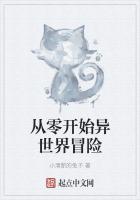His great works endured; the plays which renewed the youth of the French stage, the novels which Thackeray loved to praise, these remain, and we trust they may always remain, to the delight of mankind and for the sorrow of prigs.
So much has been written of Dumas' novels that criticism can hardly hope to say more that is both new and true about them. It is acknowledged that, in such a character as Henri III., Dumas made history live, as magically as Scott revived the past in his Louis XI., or Balfour of Burley. It is admitted that Dumas' good tales are told with a vigour and life which rejoice the heart; that his narrative is never dull, never stands still, but moves with a ******* of adventure which perhaps has no parallel. He may fall short of the humour, the kindly wisdom, the genial greatness of Sir Walter at his best, and he has not that supernatural touch, that tragic grandeur, which Scott inherits from Homer and from Shakespeare. In another Homeric quality, [Greek text], as Homer himself calls it, in the "delight of battle" and the spirit of the fray, Scott and Dumas are alike masters. Their fights and the fights in the Icelandic sagas are the best that have ever been drawn by mortal man. When swords are aloft, in siege or on the greensward, or in the midnight chamber where an ambush is laid, Scott and Dumas are indeed themselves. The steel rings, the bucklers clash, the parry and lunge pass and answer too swift for the sight. If Dumas has not, as he certainly has not, the noble philosophy and kindly knowledge of the heart which are Scott's, he is far more swift, more witty, more diverting. He is not prolix, his style is not involved, his dialogue is as rapid and keen as an assault at arms. His favourite virtues and graces, we repeat it, are loyalty, friendship, gaiety, generosity, courage, beauty, and strength. He is himself the friend of the big, stupid, excellent Porthos; of Athos, the noble and melancholy swordsman of sorrow; of D'Artagnan, the indomitable, the trusty, the inexhaustible in resource; but his heart is never on the side of the shifty Aramis, with all his beauty, dexterity, bravery, and brilliance. The brave Bussy, and the chivalrous, the doomed La Mole, are more dear to him;and if he embellishes their characters, giving them charms and virtues that never were theirs, history loses nothing, and romance and we are the gainers. In all he does, at his best, as in the "Chevalier d'Harmenthal," he has movement, kindness, courage, and gaiety. His philosophy of life is that old philosophy of the sagas and of Homer. Let us enjoy the movement of the fray, the faces of fair women, the taste of good wine; let us welcome life like a mistress, let us welcome death like a friend, and with a jest--if death comes with honour.
Dumas is no pessimist. "Heaven has made but one drama for man--the world," he writes, "and during these three thousand years mankind has been hissing it." It is certain that, if a moral censorship could have prevented it, this great drama of mortal passions would never have been licensed, at all, never performed. But Dumas, for one, will not hiss it, but applauds with all his might--a charmed spectator, a fortunate actor in the eternal piece, where all the men and women are only players. You hear his manly laughter, you hear his mighty hands approving, you see the tears he sheds when he had "slain Porthos"--great tears like those of Pantagruel.
His may not be the best, nor the ultimate philosophy, but it IS a philosophy, and one of which we may some day feel the want. I read the stilted criticisms, the pedantic carpings of some modern men who cannot write their own language, and I gather that Dumas is out of date. There is a new philosophy of doubts and delicacies, of dallyings and refinements, of half-hearted lookers-on, desiring and fearing some new order of the world. Dumas does not dally nor doubt: he takes his side, he rushes into the smoke, he strikes his foe; but there is never an unkind word on his lip, nor a grudging thought in his heart.















